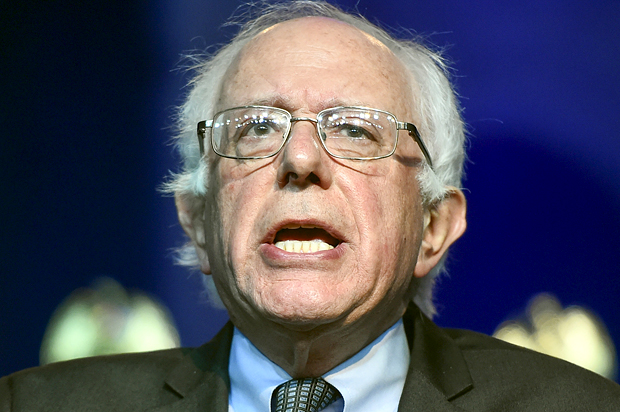We are living through the Summer of Sanders.
The senator from Vermont is drawing the biggest crowds of the 2016 campaign as he runs for the Democratic presidential nomination, and there are increasing signs that his message is resonating more and more with voters. A recent poll put him within striking distance of Hillary Clinton in Iowa, causing a glut of “Is Hillary in trouble?” articles wondering whether Clinton’s seemingly inevitable path to the nomination is really under threat.
It’s pretty easy to see why Bernie Sanders has struck a chord, even if he’s probably pretty surprised at his own success. He’s not hurt by running against Clinton, whose many, many flaws are all to clear to see; but he’s also benefiting from our current societal climate.
We are in strange times right now—a blend of almost total political and economic stagnation and wrenching change. It’s hard not to feel like we are on the cusp of something, a real before-and-after historical moment. The world is unsettled. The planet is on the verge of environmental collapse. Something is going to give.
Such turmoil is going to find plenty of outlets to express itself, in ways both beautiful, like the Black Lives Matter movement, and ugly, like the rise of far-right nationalism in Europe. In retrospect, it would have been odd if the American electoral system had not been affected in some way.
Now, that system is about as conservative as it’s possible to be, which is why Bernie Sanders can be painted as such a far-out rebel. Lots of the things he’s calling for, like single-payer healthcare, free college tuition and stringent campaign finance regulations, are non-issues in tons of other industrialized democracies.
If you want an example of a white-haired socialist truly spooking his party, hop across the pond to Britain, where the Labour Party establishment is currently in meltdown at the very likely prospect that Jeremy Corbyn—who sits decisively to Sanders’ left—will be elected party leader in a couple of weeks. Corbyn has contemplated withdrawing from NATO, called for the UK to scrap its nuclear weapons program, renationalize its railways and breaking with the punishing austerity currently ravaging its poorest communities—oh, and he’s promised to apologize for the Iraq War, too. Tony Blair, a man who’s never met a war he didn’t like or a Thatcherite consensus he couldn’t embrace, is having a coronary.
The Democratic establishment, in contrast, is actually pretty comfortable with Sanders, which makes sense, since you don’t get to be a senator without making some sort of accommodation with the elite. The sneaky truth about Sanders is that the political system has been able to make room for him quite easily. There’s a reason you don’t see Democrats tearing their hair out about him like Republicans do about Ted Cruz. A recent Politico article details how, after decades spent warily circling each other, Sanders and the Democratic leadership in Congress came to an understanding when Sanders ran for the Senate in 2006:
The Democratic Senatorial Campaign Committee, led by New York’s Chuck Schumer, quickly got behind Sanders when he ran, and Nevada’s Harry Reid happily welcomed him to the Senate Democratic Caucus once he won. In December of that year, a month after his election, Ted Kennedy invited Sanders and the rest of the Democrats on the Senate’s Health, Education and Labor and Pensions Committee to an intimate dinner at his Washington home. Also in attendance? Barack Obama. And Hillary Clinton.
This embrace of Sanders was about politics, too: Democrats wanted to increase their numbers, and they needed Sanders to caucus with them to help win back the Senate majority. The move paid off for both sides. Sanders climbed the ladder: In the last Congress, he was the chairman of the Veterans’ Affairs Committee; now, he is the top Democrat on the Budget Committee.
The only thing that will change any of this chumminess is if Sanders actually starts winning. A senator from Vermont is more easily contained than a presidential candidate with the wind at his back. Despite the current breathlessness from the pundits, it’s far too early to tell if Sanders represents a real danger to Clinton. She’s no fool, and has tacked left in response to the shifting mood in the Democratic base. She has the entire party apparatus at her disposal. So far, she hasn’t needed to deploy it. But Clinton has waited too long for glory to be derailed by the likes of Sanders. She won’t hesitate to go after him. For his part, Sanders has usually been content to project his attacks outwards while avoiding intraparty feuds. What’s he going to do if the Clinton machine comes down on him?
We’re going to have to wait until January to see whether or not voters are merely flirting with Sanders. If not, then fasten your seatbelts.


